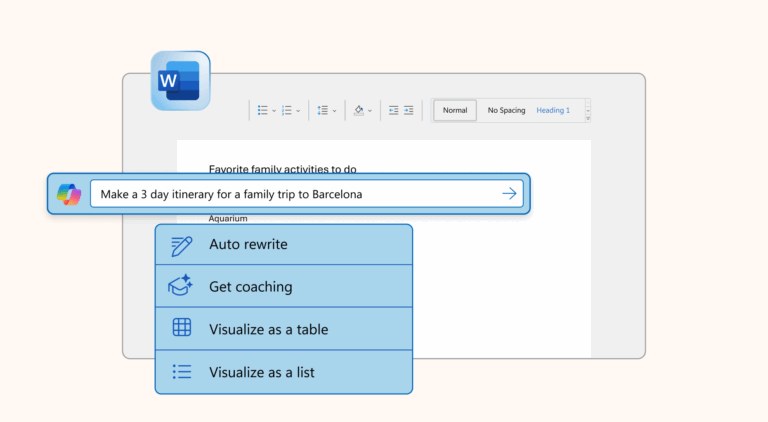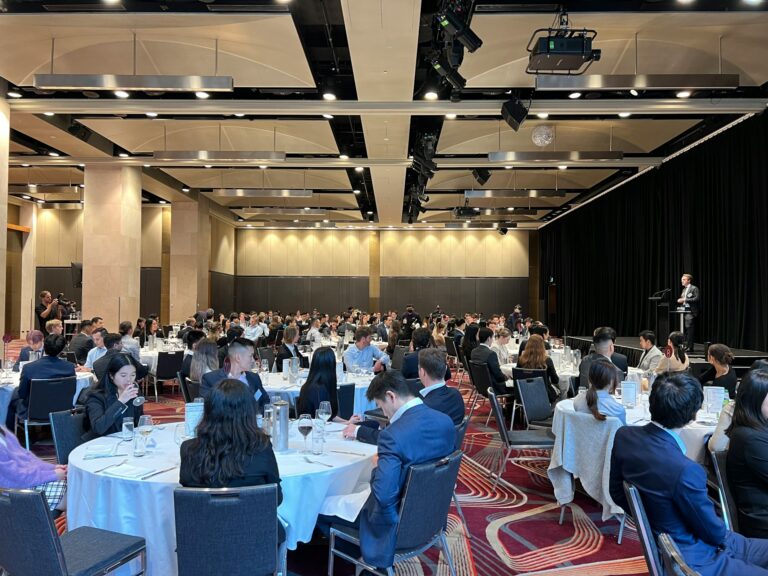Key Facts at a Glance
- Half of all meeting planners worldwide will use AI technology in 2025
- 45% of event organizers actively use AI tools to enhance operations and personalize attendee experiences
- 78% of event planners using AI tools report higher return on investment
- Automated content creation saves event teams up to 15 hours per week
- Small events typically recover their AI investment within 3-4 months
- Staff time savings translate to $2,000-5,000 monthly in reduced labor costs
- Marketing automation cuts promotional spending by 30%

Before the event – artistic impression. Image credit: Shardayyy Photography via Unsplash, free license
Event planners now accomplish in hours what once took weeks. AI technology has eliminated the bottleneck of manual budget calculations, timeline construction, and vendor coordination that traditionally consumed days of professional time. Event professionals are leading AI adoption, with 67% already using AI for event planning, outpacing other industries in practical implementation.
The transformation extends beyond simple automation. AI tools now generate comprehensive event budgets with detailed cost breakdowns, create multi-phase timelines with contingency planning, and produce vendor briefs that match specific event requirements. Organizations achieve ROI within 1-2 months for large events and 3-4 months for smaller gatherings.
Automated Budget Creation That Eliminates Manual Calculations
AI budgeting tools analyze historical event data to produce accurate cost projections without spreadsheet tedium. The technology examines past invoices, vendor pricing patterns, and seasonal fluctuations to generate realistic budget frameworks.
AI analyzes historical data like past event budgets, vendor costs, and attendance to predict expenses and revenue more accurately. Planners input basic event parameters—attendee count, venue type, catering preferences—and receive itemized budgets within minutes.
The system automatically categorizes expenses into standard event planning buckets: venue rental, catering, audio-visual equipment, marketing materials, and staff costs. AI can automatically sort and label expenses into categories such as “Venue,” “Food & Beverage,” or “Marketing,” ensuring reports stay clean and consistent.
Real-Time Expense Tracking Prevents Budget Overruns
Modern AI platforms integrate with accounting systems to monitor spending as it occurs. AI integrates with accounting and event management systems to track spending in real-time and flag budget overruns before they happen. Planners receive immediate alerts when categories approach spending thresholds.
The predictive capabilities warn about cost trends before they become problems. AI can warn when costs are trending above average or suggest reallocations to optimize ROI. This proactive monitoring replaces reactive budget management that discovers problems after money has already been spent.
Scenario Planning Lets Planners Test Multiple Budget Options
AI generates alternative budget versions instantly, allowing comparison of different spending approaches. A single prompt produces conservative, standard, and premium budget scenarios with corresponding adjustments across all line items.
Tableau, an AI-driven visualization tool, is ideal for refining budgeting strategies and predicting ROI. The workflow begins with uploading historical financial reports, then requesting AI to predict future needs based on established patterns, and finally identifying cost-saving alternatives for venues, catering, and equipment.
Planners can input budget constraints and let AI suggest where to save, asking questions like “How can I create a luxury feel at a corporate dinner for 100 people with only $15k?” The system breaks down realistic options across all spending categories.
Timeline Generation With Built-In Contingency Planning

Event planning is a vital part of the event itself, contributing highly to its overall success. Image credit: HamZa Nouasria via Unsplash, free license
AI creates detailed event timelines that account for task dependencies, team availability, and potential delays. The technology maps out preparation phases from initial planning through post-event wrap-up.
Project management platforms with AI assistants generate task lists automatically. Galaxy AI Event Planner provides smart scheduling, generating detailed timelines based on preferences and vendor recommendations. The system identifies critical path activities and suggests optimal task sequencing.
Multi-Phase Scheduling Coordinates Complex Event Components
Large events require coordination across dozens of simultaneous activities. AI scheduling tools propose optimal meeting times, automate reminder systems, and send notifications to team members and vendors.
AI-powered scheduling tools can propose the best meeting times, automate reminders, and send automated notifications to attendees Expo Pass. The technology considers time zones for international teams, venue availability windows, and vendor delivery schedules.
Timeline tools integrated with project management systems allow real-time updates when circumstances change. Team members see current schedules, upcoming deadlines, and their specific responsibilities without manual coordination meetings.
Dependency Mapping Prevents Timeline Conflicts
AI identifies which tasks must complete before others can begin. Venue confirmation must precede catering contracts, which must happen before menu printing. The system automatically adjusts downstream deadlines when upstream tasks experience delays.
This dependency awareness prevents the cascade failures that plague manually managed timelines. When a vendor pushes back their delivery date, AI recalculates all affected tasks and alerts relevant team members about revised schedules.
Vendor Brief Creation Matched to Specific Event Needs
AI generates comprehensive vendor briefs that communicate exact event requirements. The technology transforms basic event descriptions into detailed specifications vendors need for accurate proposals.
Planners feed ChatGPT event specifications and get structured starting points for sponsorship proposals, event briefs, and marketing materials. While these drafts require professional review, they establish core elements and save substantial planning time.
Automated Venue Sourcing Eliminates Manual Research
AI-powered platforms handle the time-consuming work of venue identification and initial outreach. Nowadays, a Y Combinator-backed platform, acts as a virtual event planner by automatically reaching out to suitable venues and handling initial negotiation stages.
The system contacts venues, checks availability, and requests price quotes without human intervention. AI chatbots like ChatGPT and Microsoft Copilot compare venue options based on budget, attendee preferences, and availability. Planners receive shortlists of qualified venues with preliminary pricing instead of spending days on phone calls and emails.
Specification Documents Detail Technical Requirements
AI creates technical specification sheets for audio-visual vendors, caterers, and equipment suppliers. The documents include power requirements, internet bandwidth needs, room layouts, and equipment lists.
Planners can input challenging venue requirements and ChatGPT provides multiple practical layouts and configurations, offering fresh perspectives on space utilization. The system handles awkward spaces, capacity limits, and setup restrictions.
For catering vendors, AI generates detailed attendee information including dietary restrictions, meal timing preferences, and service style requirements. The comprehensive briefs reduce back-and-forth communication and ensure vendors submit accurate proposals.
Platform Comparison: Choosing the Right AI Tools

You can plan events using widely available AI tools, such as Microsoft Copilot AI, too. Image credit: Microsoft
Event planners select from specialized platforms and general-purpose AI tools. The decision depends on event type, team size, budget allocation, and required features.
Networking-Focused Platforms Excel at Attendee Engagement
Grip and Brella specialize in AI-powered matchmaking for conferences and trade shows. Grip uses advanced machine learning algorithms to match conference attendees, exhibitors, and sponsors based on their interests and goals, delivering over 70 million personalized recommendations per year.
Brella employs an AI-powered matchmaking algorithm analyzing hundreds of data points to find highly relevant matches for each person, with smart scheduling tools that help attendees book meetings at mutually convenient times. These platforms prove most valuable for B2B events where networking ROI drives attendance.
Both require custom pricing and work best with minimum attendee thresholds. The investment makes sense for conferences with 500+ attendees focused on business relationship building.
Project Management Systems Integrate AI Throughout Workflows
ClickUp combines project management with AI assistance specifically designed for event planners. ClickUp AI comes with hundreds of research-backed prompts and functions as an AI-powered assistant tailored to the event planner role.
The platform generates task lists, creates timelines, and suggests vendors within the existing project management environment. All AI-generated content can be immediately turned into ClickUp tasks, assigned to team members, and tracked on dashboards. This creates seamless workflow from AI suggestion to team execution.
Pricing starts with a free tier supporting unlimited users, making it accessible for small teams. The AI add-on costs an additional $7 per user monthly on paid plans.
Industry-Specific Platforms Provide Specialized Knowledge
Spark, a generative AI platform created for event professionals through collaboration between Gevme and the Professional Convention Management Association, was trained on data from thousands of event planners, venues, and destinations.
Spark provides real-time session summaries and key takeaways, analyzing live presentation content and displaying summary points and “idea clouds” of main themes for attendees as sessions conclude. The platform automatically generates post-event recaps, translates insights into multiple languages, and creates personalized highlights for different attendee segments.
General AI Tools Handle Content Creation and Brainstorming
ChatGPT serves as a versatile assistant for text-based event planning tasks. Event planners use ChatGPT to brainstorm creative themes, draft emails and promotional material, create initial agenda versions, and generate speaker suggestions.
The tool excels at overcoming writer’s block and producing first drafts. When clients request “something innovative,” planners ask ChatGPT to translate that into concrete event concepts, such as “Generate three event concepts for a tech company that wants innovative but not gimmicky, budget $100k, 150 guests”.
ChatGPT offers a functional free tier with paid options starting at $20 monthly for enhanced capabilities.
Data Analytics Drive Smarter Event Decisions

Artificial intelligence, AI prompt generation – abstract artistic impression. Image credit: Alius Noreika / AI
AI tools transform raw event data into actionable insights that improve future planning. The technology identifies patterns in attendee behavior, spending efficiency, and engagement levels.
72% of organizers use real-time dashboards and lead capture tools to demonstrate event value, tracking leads, brand exposure, and attendee engagement. These analytics provide concrete evidence of event ROI for stakeholders and sponsors.
Predictive Analytics Forecast Attendance and Resource Needs
AI forecasts attendance numbers, predicts resource requirements, and optimizes room layouts based on historical data and registration patterns. This data-driven approach reduces waste by 20-30% while ensuring adequate staffing and supplies.
Vendelux exemplifies AI event intelligence platforms. Vendelux aggregates over 200,000 global B2B events and millions of attendee data points, using AI to predict attendee decision-making patterns and forecast potential ROI of participating in specific conferences.
The platform identifies top industry events attracting desired customer profiles, helping planners prioritize event budget allocation. It monitors event sign-ups and sends alerts when major clients or competitors register for particular conferences.
Engagement Tracking Reveals What Resonates With Attendees
Zenus offers AI-powered facial analysis that anonymously measures audience reactions in real-time. Zenus works via cameras at event venues to measure the number of impressions a booth or session receives, approximate age group and gender breakdown of attendees, and sentiment of the crowd through facial expressions.
The technology replaces post-event surveys with immediate behavioral data. Spikes in positive sentiment and extended dwell times indicate strong interest, allowing organizers to make on-the-fly improvements or note successful elements for future events.
Practical Implementation Starts With Small Steps
Event teams adopt AI gradually rather than attempting complete digital transformation overnight. Many platforms allow starting small by investing 2-5% of event budgets, then expanding as returns become apparent through saved time, reduced costs, and better outcomes.
Focus Initial AI Adoption on High-Impact Areas
Identify the most time-consuming manual tasks in current workflows. Content creation, email communications, and budget tracking typically offer the quickest wins with AI implementation.
Event professionals spend nearly 40% of their time on administrative tasks. AI handles these repetitive activities, freeing planners to focus on creative decisions and relationship building that require human judgment.
Begin with general-purpose tools like ChatGPT for content generation before investing in specialized event platforms. AI can help create event webpages and generate content for landing pages, speaker bios, schedules, and registration pages.
Measure Results and Expand Strategically
Track time savings, cost reductions, and quality improvements from initial AI adoption. Document specific metrics: hours saved on budget creation, reduction in email response time, or decrease in planning meeting frequency.
Small events with under 500 attendees usually recover their AI investment within 3-4 months, while medium-sized events see returns within 2-3 months, and large events with over 2,000 attendees often achieve ROI within 1-2 months.
Use proven results to justify expanded AI investment. Move from basic content generation to comprehensive event management platforms as team comfort with the technology increases.
Selection Criteria for Event Planning AI Tools
Choose AI platforms based on event type and scale. Large B2B conferences with complex networking needs benefit most from specialized platforms like Grip or Brella. Corporate event planners managing multiple smaller gatherings find more value in Nowadays or ClickUp.
Budget allocation plays a central role in tool selection. While ChatGPT and ClickUp offer functional free tiers, specialized event AI tools require substantial investment. Calculate potential ROI by considering time savings, improved attendee satisfaction, and enhanced sponsor value.
Examine existing technology infrastructure carefully. Teams already using Cvent for registration achieve smoother integration by adding their video tools. Organizations established in ClickUp for project management benefit from adding AI features rather than adopting entirely new platforms.
Team technical proficiency determines implementation success. ChatGPT requires minimal training while platforms like Vendelux or Zenus need dedicated onboarding. Factor in training time and potential resistance when evaluating implementation timelines.
Privacy Considerations and Data Protection
The European Union introduced AI guardrails through the Artificial Intelligence Act, with laws slated to take effect in 2025. Event planners must carefully review platform privacy policies and compliance certifications, especially when operating in regions with strict data governance requirements.
Zenus designed its facial analysis technology with privacy as a core principle. The system does not store personal data or identify individuals, instead aggregating metrics like impression counts and sentiment trends.
Event platforms handling attendee data must comply with GDPR, CCPA, and other privacy regulations. Organizations with strict data governance requirements should prioritize platforms with enterprise security features and relevant compliance certifications.
The Measurable Business Impact of AI Implementation
Staff time savings translate to $2,000-5,000 monthly in reduced labor costs, while marketing automation typically cuts promotional spending by 30%. These savings compound with improved registration rates, which boost ticket revenue by 15-20% on average.
Automated content creation saves teams up to 15 hours per week. These hours redirect to high-value activities like stakeholder relationship management, creative strategy development, and attendee experience enhancement.
AI-powered recovery systems bring back over half of abandoned registrations through smart, automated follow-ups, with some platforms reporting registration increases of up to 22% through these automated re-engagement techniques.
Event planners report specific operational improvements. Planning timelines compress from weeks to days. Vendor coordination reduces from dozens of emails to automated workflows. Budget accuracy improves with data-driven forecasting replacing estimation.
Future Developments in AI Event Technology
The event industry continues rapid AI evolution. Emerging capabilities include hyper-personalized attendee journeys, automated logistics coordination, and advanced real-time sentiment tracking.
Over 90% of event planners now use AI for tasks like session recommendations, matchmaking, and predictive analytics. Adoption rates accelerate as platforms mature and success stories accumulate across the industry.
AI assistants handle increasing complexity in attendee communications, session summaries, and registration management. Modern AI assistants manage up to 80% of common queries without human intervention, extending support across multiple languages to make events more accessible to international audiences.
The technology learns from each interaction, becoming more effective over time. This continuous improvement means better attendee experiences and reduced routine work for planners with every event cycle.
Event professionals who embrace AI early gain competitive advantages through increased efficiency, data-driven decision-making, and enhanced event experiences. The transformation from manual processes to AI-assisted workflows represents not a future possibility but a current operational reality delivering measurable results across the event planning industry.
If you are interested in this topic, we suggest you check our articles:
- What is AI Infrastructure? A Detailed Guide on Key Components
- 10 Real Life Examples of Sustainable AI in Action
- AI-Powered Supercomputers: Advancing Technology and Innovation
Sources: Convene, Whova, Event Industry News, REVE Chat, Eventtia, Vendelux, Expo Pass, Unite.AI, Accio, Microsoft
Written by Alius Noreika

